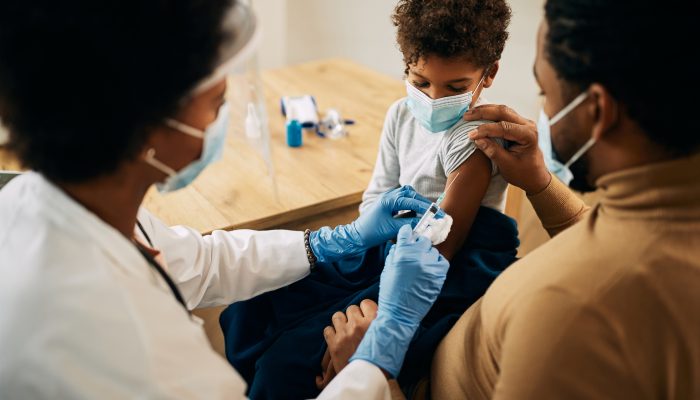Philadelphia, PA – A recent case of measles outbreak in Philadelphia has raised serious concerns among health officials as the city of Philadelphia grapples with eight confirmed cases, including at least five children, over the past month. All affected individuals lacked immunity to the highly contagious virus, according to James Garrow, a spokesperson for the Philadelphia Department of Public Health.
The outbreak originated when an individual who contracted measles outside the United States visited the Children’s Hospital of Philadelphia in early December. This seemingly innocuous visit, however, led to the exposure of three individuals at the hospital, who later tested positive for measles. Shockingly, one of the exposed individuals from the hospital attended a local day care, sparking a chain of infections that resulted in the hospitalization of two children from the day care with confirmed measles.
In a statement issued by the health department, officials disclosed that a measles case attended the day care facility on December 20 and 21, potentially exposing both children and staff to the virus. The gravity of the situation escalated on Monday when health officials identified three additional cases of children at the day care with possible measles cases, bringing the total number of confirmed cases to eight.
In a bid to contain the outbreak, health officials swiftly expanded the list of possible exposure locations and dates, spanning from December 19 to January 3. Individuals who may have been exposed to the virus are now strongly advised to observe a 21-day quarantine period after potential exposure.
Dr. Christina Johns, a pediatric emergency physician and spokesperson for the American Academy of Pediatrics, emphasized the critical role vaccination plays in preventing the spread of measles. To address the current situation, the health department is offering free measles, mumps, and rubella vaccinations to all residents of the city.
Measles, a highly contagious respiratory disease, can spread through coughing, sneezing, or touching surfaces contaminated by an infected person. The initial symptoms mimic those of other respiratory illnesses, followed by a characteristic rash that usually starts on the face and spreads downward three to five days after symptoms begin. While the illness can be mild in some cases, it poses significant risks, particularly to the unvaccinated and young children, with potential complications including blindness and encephalitis.
Despite measles being declared eliminated in the United States, the recent outbreak in Philadelphia underscores the persistent threat of the disease. Outbreaks can occur if an unvaccinated person travels to a country where the disease is still prevalent and brings it back, transmitting the virus to unvaccinated individuals.
Dr. Johns stressed the importance of community awareness and adherence to public health recommendations during outbreaks, stating, “It’s important for everybody to do their part in an outbreak like this, to have awareness of the ongoing situation and to follow public health recommendations closely.”
Outbreaks of vaccine-preventable diseases serve as a stark reminder for communities to ensure they are up-to-date on vaccinations. A CDC report from 2023 indicated that about 92% of US children had been vaccinated against measles, mumps, and rubella by age 2. The last significant measles outbreak in the US occurred in 2018-19 in Rockland County, New York, primarily affecting unvaccinated children in Orthodox Jewish communities.
As of 2023, 48 measles cases were reported nationwide, emphasizing the importance of maintaining high vaccination rates to prevent the resurgence of vaccine-preventable diseases. The Philadelphia health department urges residents to take advantage of the free vaccination initiative to protect themselves and their communities from further spread. In the face of this measles outbreak, the city remains vigilant, emphasizing the role each individual plays in safeguarding public health.



